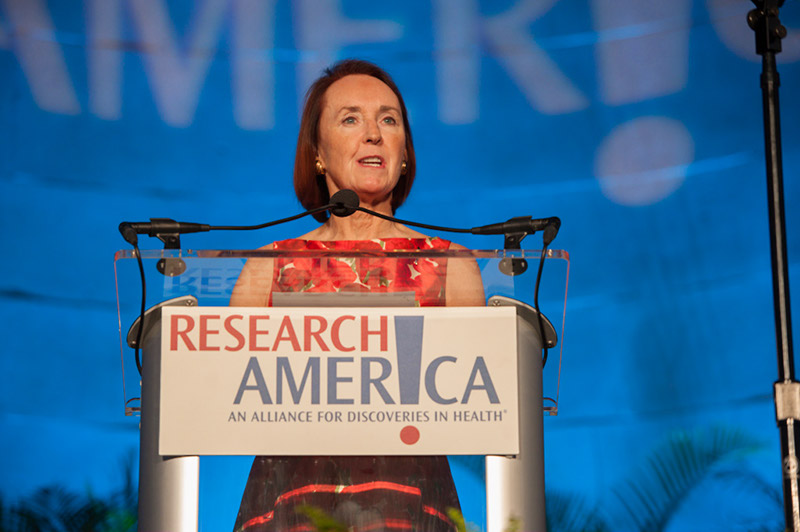Writing Early for Several Good Reasons

 Dear Research Advocate:
Dear Research Advocate:
I am sending this week’s letter a day earlier than usual to urge you to take part (if not in person, then by livestream) in our 2017 National Health Research Forum titled “Is a ‘Disease-Free’ World Within Reach?” tomorrow, September 7th, at 11:30 am EST. It’s an opportunity to hear from thought leaders across the research ecosystem on topics ranging from opioid addiction to FDA priorities to organs-on-a-chip. While the Forum has reached in-person seating capacity, it will be livestreamed by WebMD; tune in here.
Earlier today, the Senate Labor-H Appropriations Subcommittee, the jurisdiction of which includes NIH, CDC and AHRQ, passed their FY18 bill out of subcommittee, to be considered by the full committee tomorrow. For the third year in a row, Chairman Roy Blunt (R-MO) and Ranking Member Patty Murray (D-WA) put together a bipartisan bill, and despite difficult budgetary conditions, included a $2 billion increase for NIH. We are hopeful for good news about CDC and AHRQ, too, but we must wait for the bill text to be released to know for sure. Stay tuned.
We truly appreciate the Subcommittee’s ongoing support for NIH. Unfortunately, we have more work to do. All of the appropriations bills making their way through the House and Senate are premised on achieving some kind of budget deal. (The House bills assume a ‘cap-busting’ overall defense budget, and the Senate bills bust both defense and nondefense caps.)
If signed into law without a deal to raise the caps, these appropriations bills would trigger a “sequestration” (in this context, “sequestration” means an across-the-board budget cut. The term is also used to signify a reduction in the budget caps…believe me, I know how confusing this is.) The bottom line is that without a bipartisan budget deal, science funding will at best stagnate, and could well shrink. We can’t let that happen.
Congress and the President are reportedly coalescing around the idea of adding a short term continuing resolution (CR) and debt ceiling relief to the Hurricane Harvey emergency supplemental. While this news is still fresh and in flux, I would say the odds are good that Congress will take this path. This approach makes sense given the long list of action items on the agenda for Fall. While a CR is far from ideal, it does provide breathing room for Congress to negotiate a bipartisan budget deal. We have to keep our eye on that ball.
As I write this, Research!America Chairman, Governor Michael Castle, and Research!America Board Member and AAAS President, Dr. Rush Holt, are making the case for a budget deal with key Members of Congress, including Sen. Murray and Rep. Charlie Dent (R-PA-15). Join us in fighting for a budget deal by taking part in two digital days of action to #RaiseTheCaps, on September 11 and 12. It’s easy! Here’s how.
As I think about tomorrow’s Forum and the opportunity it presents to engage a diversity of individuals who contribute so meaningfully to research and public health, I am reminded of the thousands of people who continue to bear the brunt of Harvey, and countless others in the path of Irma. It is a privilege to advocate for work that helps people rebuild, literally and figuratively, when times are at their toughest. Thank you for what you do everyday, whether in the path of danger or safe but willing and eager, nonetheless, to help those who are.
Sincerely,
Mary Woolley




